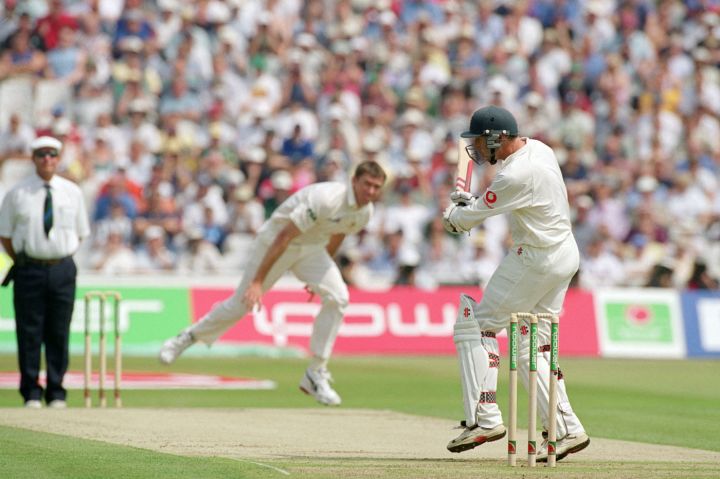How will future historians judge modern numbers?
Will they think there's something odd about a bowler getting a batsman out one too many times?

Charles Brandon, the Duke of Suffolk, was one of the best jousters in the court of Henry VIII - except when he was fighting the king himself. Emma Levitt, a PhD student at the University of Huddersfield, has speculated that Brandon let Henry win and, by doing so won preferment, rising from modest beginnings to become one of Henry's most powerful courtiers.
"The only thing he is any use at is jousting," Levitt told the Times after examining the scorecards held at the College of Arms in London. "This is something that has been completely overlooked. I have used the score cheques to look at him and they show that he is the best jouster in Henry's court and he often jousts against the king. However, it seems that he manipulates the scores. When he jousts against everybody else, he will win. When he jousts against the king, he will lose. In a way, he has done all the hard work for the king - Brandon has beaten everybody else, but Henry has beaten Brandon."
Perhaps she's right, but you wonder if that's how jousting correspondents of the time saw it. (After all, if joust-fixing was all it took to rise at court, surely everybody would have been doing it?)
A historian may see the discrepancy in Brandon's results against the king and against everybody else as evidence of manipulation, but a sportswriter would instinctively suggest a technical flaw that Henry's style of jousting was especially adept at exploiting. Could it be, in other words, not that Brandon was letting Henry win, but that Brandon was Henry's bunny?
Sadly there is no Joustinfo with a Statsguru to pursue the notion of bunnies in the lists further, but a quick glance at its cricketing equivalent shows a remarkable fact. That Mike Atherton was out regularly to Glenn McGrath is well known - 19 times in 17 matches - but he was also out 17 times in 26 matches against Curtly Ambrose and 17 times in 27 matches against Courtney Walsh. Atherton was only out 205 times in Tests: 53 of those dismissals, over a quarter, came against the same three bowlers.
To a follower of cricket, of course, that is intriguing but explicable. Atherton opened the batting. He faced McGrath, Ambrose and Walsh, three of the finest opening bowlers of all time, a lot. Openers are always likely to feature highly on lists of bunnies, partly because they face the new ball, partly because they face the best bowlers at their freshest, and partly because they regularly face the same bowlers (whereas a No. 4, say, could be coming in at any point between the first over and the 101st and so facing a far greater variety of bowler). That Atherton was out so often to those three is a statistical quirk but no more.
But how would historians of the future judge those facts? Why did Atherton, who scored 16 Test centuries, who made runs so doggedly against other bowlers, get out so frequently to those three bowlers? Was he seeking some sort of preferment from McGrath, Ambrose and Walsh? Were they part of a shady cabal that somehow had influence over who got commentary gigs at Sky or plum correspondent's jobs at the Times?
That sounds absurd, of course, and it is: Atherton is an excellent broadcaster and journalist who fully deserves the awards he was won. If he weren't any good, he'd have been quietly sidelined. That's manifestly true: major broadcasters and newspapers can't afford dead wood. And yet if that's true of Rupert Murdoch's empire, would it not also be true of the Tudor court? Diplomacy and politics, after all, are rather more significant, rather more dangerous, roles than dissecting cricket. If Brandon had been hopeless, Henry would surely have got rid of him.
Which brings us back to those jousting results. Maybe Levitt is right - after all, it can't have helped a courtier's cause if he was regularly knocking the king off his horse, leaving him on his backside in the dust of the lists. But then again, maybe Suffolk did have a fatal weakness, a tendency to get squared up, or dangle his lance away from his body, maybe Henry's technique - and he was, in his early days, an unusually large and athletic man - was perfectly suited to exploiting that. Maybe Suffolk is being traduced for a minor technical flaw. Statistics in sport are never the full story.
Jonathan Wilson writes for the Guardian, the National, Sports Illustrated, World Soccer and Fox. @jonawils
Read in App
Elevate your reading experience on ESPNcricinfo App.